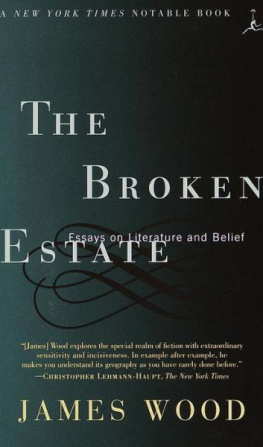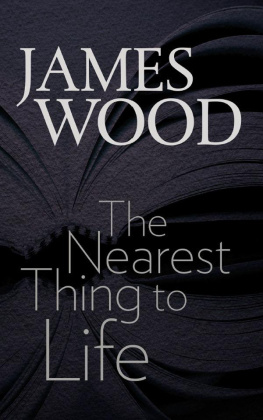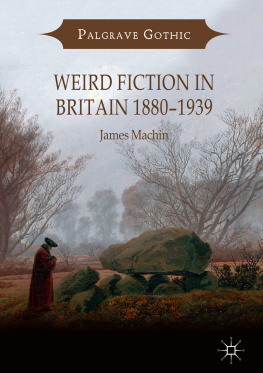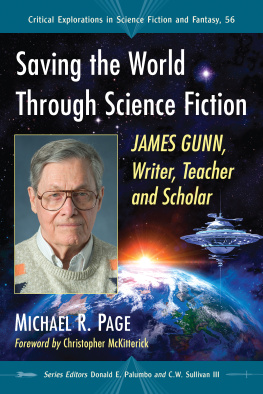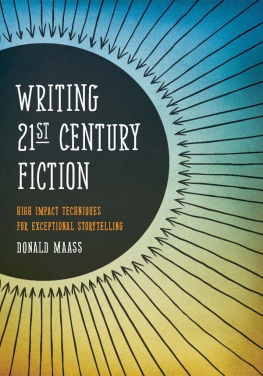
Thank you for buying this
Picador ebook.
To receive special offers, bonus content,
and info on new releases and other great reads,
sign up for our newsletters.


Or visit us online at
us.macmillan.com/newslettersignup
For email updates on the author, click here .
The author and publisher have provided this e-book to you for your personal use only. You may not make this e-book publicly available in any way. Copyright infringement is against the law. If you believe the copy of this e-book you are reading infringes on the authors copyright, please notify the publisher at: us.macmillanusa.com/piracy .
For Norman and Elsa Rush
And for C.D.M.
There is only one recipeto care a great deal for the cookery.
Henry James
In 1857, John Ruskin wrote a small book called The Elements of Drawing. Its a primer, an introduction, a short history; but its also a very individual essay, full of passionate bias. It speaks to both the ordinary art lover and the better-versed painter. Above all, it is a book about looking. Ruskin begins by urging his reader to study natureto study a leaf, say, and then to copy it in pencil. He includes his own drawing of a leaf. He moves from a leaf to a painting by Tintoretto: notice the brushstrokes, he says, see how he draws the hands, look at how he pays attention to the shading. Ruskins authority comes not from his own authority as a draftsman, but from what his eye has seen and how well, and his ability to transmit that vision into prose.
There are surprisingly few books like this about the art of fictionthat might speak simultaneously to the common reader, the hungry writer, the student, and even the scholar. E. M. Forsters book of lectures, Aspects of the Novel , is deservedly famous, but it was written in 1927. I admire the critical work of Milan Kundera, of Roland Barthes, of Viktor Shklovsky, but in different ways those writers also frustrate. Kundera is a novelist and essayist rather than a practical critic; occasionally we want his hands to be a bit inkier with text. Shklovsky and Barthes, two great twentieth-century critics of narrative prose, attend brilliantly to questions of style, to words, form, codes, metaphor, and imagery. But they thought like writers who had become somewhat alienated from creative instinct, yet who were drawn, like larcenous bankers, to raid again and again the very source that sustained themliterary style. This was especially true in the case of Roland Barthes, who had a guilty love-hate relationship with novelistic realism: he was its greatest, most acutely hostile anatomist, but he couldnt stop returning to his source, to remind himself once more of all the ways it seemed fraudulent.
Shklovsky and Barthes were formalist critics: they privileged formal literary questions over political, historical, or ethical ones. Like the formalist Nabokov, they sometimes have a way of speaking about literature as if its contentwhat a novel is about were of little consequence. Barthes concluded indeed that fictional narrative, from the referential point of view, is actually about nothing: what happens is language alone, the adventure of language, the unceasing celebration of its coming, he wrote in 1966. Since the 1950s, certain postmodernists, similarly hostile to the empiricist or positivist claims of realismand taking as their example Flauberts dream of writing a novel about nothing, a book with no matter in it, held together only by stylehave put Barthess theoretical admonitions into practice.
But Virginia Woolf wisely reminded her readers that novelists write not only in sentences but also in paragraphs and chapters, by which she meant, I think, that novels cant be only fine assemblages of words, cant succeed if they are only strings of beautiful sentences. She understood that fiction also has an ethical form, and that the form of this ethics is constituted both by a writers style and by a novels substance; this is how the novel justifies itself as a species of moral enquiry, what Ford Madox Ford called a medium of profoundly serious investigation into the human case.
As I understand literature, everything is at once a moral question and a formal one (as it surely was for Ruskin, and for Ruskins devoted reader, Proust). The formalist is ideally very interested in matters of content, since the selection of content is always a formal dilemma. And the moralist is ideally very interested in formal devices, because these are truth-bearing devices, not just beautiful ones. Fiction is not only a music, though there has long been aesthetic tension over the slightly tormenting question of just how musical it should be. How stylish should the novel be? Is it a mirror or a music, a camera or a painting? Iris Murdoch reframed this old debate by dividing contemporary fiction into the journalistic and the crystallinethe former being the hearty, content-filled, relaxed, reportorial formlessness of traditional realism, the latter being the more self-conscious stylishness and artifice of modern formalism.
Im not untormented by these questions myself. But my instinct is to resolve them by recourse to both/and, rather than either/or. In this book, I like to move between poles rather than plant flags. A particular novel, or particular writer, will seem artificial and lifelessat which moment my critique might sound as if its coming from the hearty journalistic camp; another novel or writer will seem not stylish enough, not artificial enough at which moment my critique might sound as if its coming from the crystalline aesthete camp. (Likewise, I find that when Im talking to religionists, I sound like an atheist, and when Im talking to atheists, I sound religious) But at all times the writer must be wary of the conventional, whereby novelistic devices get flattened into an easy, lazy grammar, and writing resembles some hideous old boarding school that has never seen a compelling reason to change any of its rules.
When this book was first published in 2008, it was sometimes seen as a defense of classic realism. I hope this revised version makes clearer, ten years later, that on the contrary, Im wary of conventional realism but drawn to a kind of deep realism, which I do believe runs through the novelistic tradition. Far from wanting to defend realismand anyway, it needs no defenseI want to interrogate it, and to demonstrate the ways in which it is at once natural and highly artificial; I want to show how it works (and to be respectful of those mysteries that cant be explained). Of course fiction is both artifice and verisimilitude, and it isnt difficult to hold together these possibilities. How Fiction Works was not, in fact, the title I had originally chosen; it was The Nearest Thing to Life , from an essay by George Eliot on German realism, in which she says that Art is the nearest thing to life; it is a mode of amplifying experience and extending our contact with our fellow-men beyond the bounds of our personal lot. I like this phrase, because the great Victorian realist is being precise. Art isnt the same as life, but very close to it, and that apparently slight distance (nearest thing) is actually a canyon, the large distance of artifice.
So this book is an exercise in formalist criticism and an exercise in ethical criticism. Im excited by questions of style (how metaphors work, which details are more powerful than others and why, how point of view functions, and so on) and equally excited by questions of content (what is this novel about, what does it tell us about human motive, about how we live) or literary metaphysics (what makes a novelistic character seem alive, how does the novel disclose the real, what is the nature of the fictional enquiry into consciousness, what is the real anyway, and so on). Most of these are old literary questions, but my hope is to answer them practically, as Ruskin approached the leaf and the Tintoretto paintingor to put it differently, I want to answer a critics questions with a writers answers.
Next page

